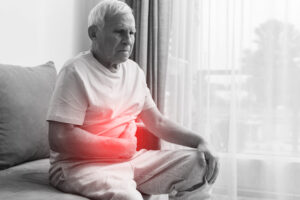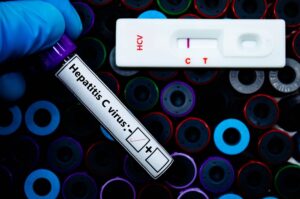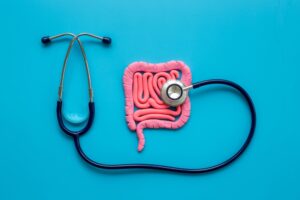
Signs of Stomach Ulcers
Stomach ulcers are open sores that develop on the lining of the stomach or small intestine, but heartburn is caused when stomach acid flows back into the esophagus.

Where some people eat to live, most live to eat. With this juxtaposition, your colon health plays a truly important role in day to day activities.
Where some people eat to live, most live to eat. With this juxtaposition, your colon health plays a truly important role in day to day activities. It is quite common for people to ignore seemingly harmless symptoms of heartburn and stomach aches, but it is crucial to take such matters into the hands of medical professionals to assess risk and treatment options.
Whether or not you are experiencing gastrointestinal symptoms, it is important to regularly schedule checkups with your doctor. During these visits, you will be given opportunities to screen for medical issues, determine your risk of future medical problems, plan for a healthy lifestyle, and help you get to know your provider in case of an illness.
If you are under age 50, you should be screened if you have a strong family history of colon cancer or polyps. Screening may also be considered if you have risk factors such as a history of inflammatory bowel disease.
If you are between ages 50 to 75, you should be screened for colorectal cancer. There are several screening tests available. Some common screening tests include:
You may need a colonoscopy more often if you have risk factors for colon cancer, such as:
One in five men has felt the burning discomfort of heartburn in the past month, and for many men it is a chronic malady requiring daily medication. For a variety of reasons, those with chronic heartburn end up having one or more endoscopies, in which a doctor uses a flexible lighted instrument to check for trouble down below in the esophagus.
With this procedure, you can be assured of the accuracy of the diagnosis. An endoscopy—upper or lower—is more accurate than an X-ray for detecting inflammation, ulcers, or small tumors of the esophagus, stomach, duodenum, or lower GI tract. Endoscopy is also excellent for finding the causes of gastrointestinal bleeding. If you have had major surgery, it can be used to evaluate the inside of your esophagus or stomach to search for signs of bleeding.

Stomach ulcers are open sores that develop on the lining of the stomach or small intestine, but heartburn is caused when stomach acid flows back into the esophagus.

Poorly absorbed carbs may ferment in the gut, leading to symptoms such as bloating, gas, diarrhea, or constipation.

If left untreated, GERD can lead to complications including esophagitis (inflammation of the esophagus), strictures (narrowing of the esophagus), or even Barrett’s esophagus, a condition that increases the risk of esophageal cancer.

IBS-C often requires a tailored approach that incorporates dietary changes, stress management, and sometimes prescribed medications to regulate bowel movements and reduce discomfort.

Hepatitis C can affect women differently due to hormonal variations, immune system responses, and unique physiological factors

This connection means that stress, anxiety, and other psychological factors can directly impact gut function, leading to symptoms like abdominal pain, bloating, and irregular bowel movements.

Chronic inflammation associated with IBD can lead to complications such as joint pain, skin conditions, eye issues, and more.

How different types of fiber affect IBS is crucial to creating a diet that supports digestive health without triggering flare-ups.

Lactose Intolerance occurs due to a deficiency of lactase, the enzyme responsible for digesting lactose in the small intestine.

This condition can result from various factors, including poor diet, stress, infections, or underlying health conditions like IBD.

One of the most essential steps in managing IBS is identifying specific triggers and paying attention to your body’s unique responses.

Although the symptoms of IBS can vary widely from person to person, several common signs are associated with the condition.
For Your Visit
Brick Office
P: 732-458-8300
Brick Medical Arts Building
1640 Route 88, Suite 202
Brick, New Jersey 08724
Mon – Fri: 8:30AM – 5:00PM
Sat & Sun: Closed
Neptune Office
P: 732-776-9300
Jersey Shore Medical Arts Building
1944 Corlies Ave. Suite 205
Neptune, New Jersey 07753
Mon – Fri: 8:30AM – 5:00PM
Sat & Sun: Closed
Jackson Office
P: 732-928-2300
706 Bennetts Mills Road
Jackson, New Jersey 08527
Mon – Fri: 8:30AM – 5:00PM
Sat & Sun: Closed
© All Rights Reserved